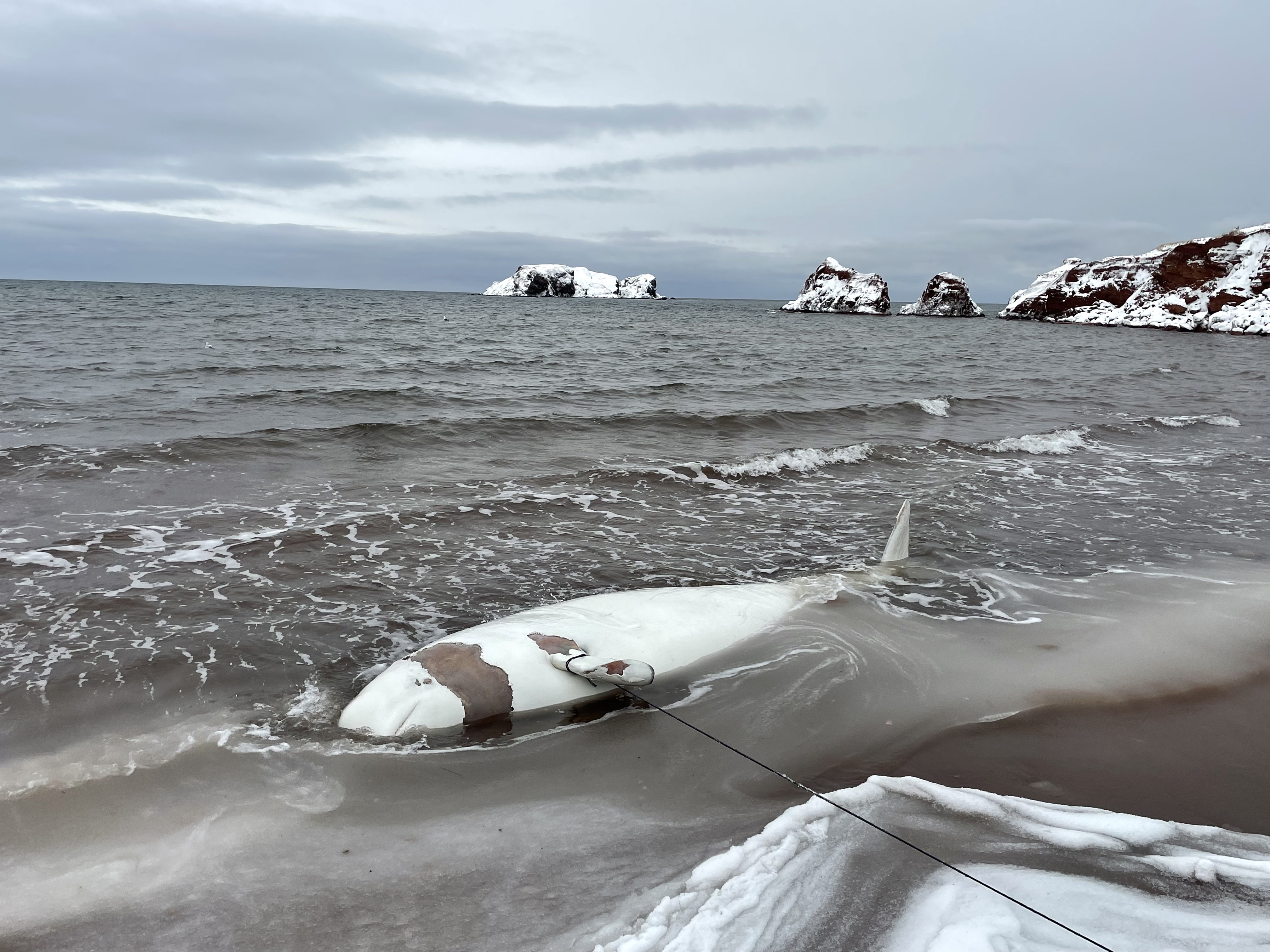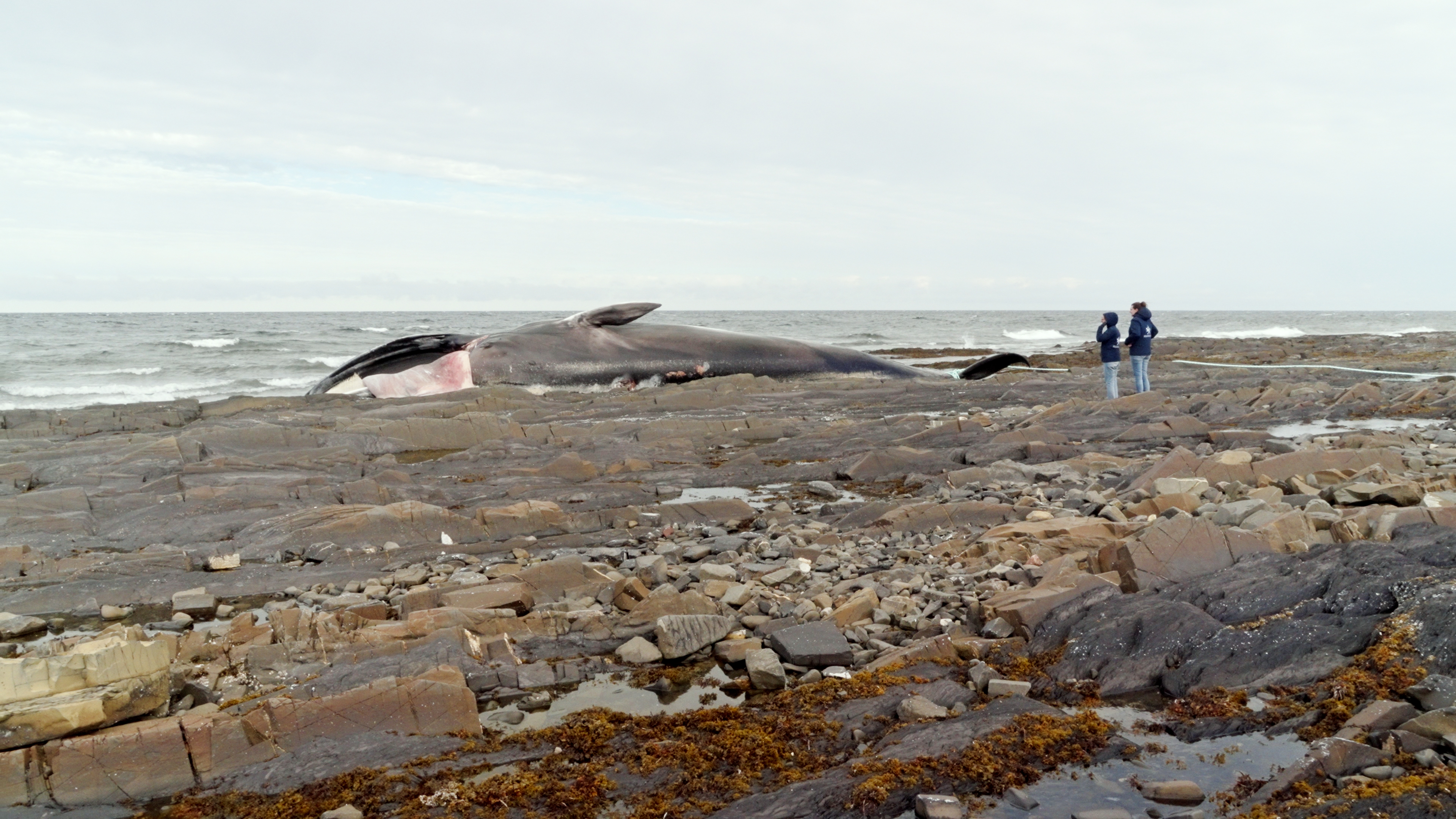One would’ve thought that the off season translates into peace and quiet at the Marine Mammal Emergencies call centre, but the past few weeks have been particularly busy at 1-877-7baleine. Since the beginning of November, more than 50 calls have been processed, while the average over the past five years is about 20 calls for the said period. Mild temperatures and the lack of snow on the shoreline may explain this high number of calls, in addition to the fact that some carcasses were documented during the season and were left on the beach with an ID tag to indicate that they had already been taken care of by the Quebec Marine Mammal Emergency Response Network. Multiple calls can therefore be associated with a single case.
Three minke whale carcasses in two days
A storm struck the Magdalen Islands on the weekend of November 26. The following day, the Marine Mammal Emergencies team recorded three reports of minke whale carcasses: one in the area of Pointe-aux-Loups (adult male), one in the Pointe-de-l’Est region, and another on the beach in Old Harry (7-metre long female, possibly the same carcass as the one in Pointe-de-l’Est, which might have drifted due to wind and waves). This carcass was also sampled thanks to the collaboration of a local resident, who took baleen and a square of tissue (article in French) at the request of researchers from Fisheries and Oceans Canada. The Ministry of the Environment is currently evaluating options to remove this mastodon from the beach, as it represents a nuisance to Magdalen Islanders due to the odours of decomposition that it releases.
Two dead belugas add to season’s total
Two more beluga carcasses have been added to the season’s tally. A 3.7 metre long adult, possibly a female, was found not far from the Manoir Richelieu in La Malbaie on December 4. After the carcass had been secured by a volunteer, the GREMM visited the site to take a portion of the jaw to evaluate its age (article in French), as well as a square of tissue (skin, fat and muscle), which will be used for genetic analyses and monitoring of the health of the St. Lawrence beluga population. The next day, another representative of this population was found lying on the beach in the Kamouraska region. This time, a young male was transported to the Université de Montréal’s faculty of veterinary medicine so that the team led by Stéphane Lair could perform a comprehensive necropsy of the animal. Preliminary results on the possible causes of mortality will be available soon.
Seals, dead and alive
Cases involving seals have also kept Marine Mammal Emergencies fairly busy. After having recorded the unusual presence of hooded seals in the Gaspé and Lower St. Lawrence this autumn, another adult of this species was seen in Sainte-Irénée, in the Charlevoix region. Harp seals, recognizable by the black horseshoe-shaped spot on their backs, were also seen alive and dead in the Gaspé Peninsula. Then, surprisingly, a Saguenay resident reported in late November the presence of a bearded seal that is believed to have spent part of the summer around the wharf in Petit-Saguenay. The bearded seal is an arctic species that is observed only very rarely in the St. Lawrence.





